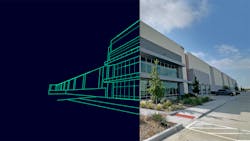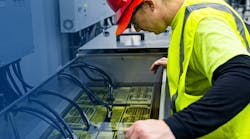Siemens Ramps Investment in U.S. Electrical Infrastructure Ahead of GenAI Data Center Surge
Last week, Siemens AG announced that it will invest $150 million in a new, high-tech manufacturing facility in the Dallas-Fort Worth market.
The expressed purpose of this new investment is to produce and ensure secure operation of critical electrical infrastructure equipment, the better to help power U.S. data centers, while boosting the uptake of AI computing workloads.
The German multinational technology conglomerate expects the new manufacturing facility, located at 7200 Harris Legacy Drive at Fort Worth’s Carter Park East as noted by Dallas Innovates, to spur the development of data centers in the U.S.
Siemens said the $150 million investment in its DFW plant is specifically intended to support long-term customers in the U.S. data center sector.
The company forecasts industry demand to grow by about 10% annually through 2030, driven by exponential adoption of generative AI platforms.
A Siemens spokesperson told S&P Global Intelligence that switchboards for electrical power infrastructure equipment used in industrial plants and data centers are what will be manufactured at the new Fort Worth plant.
Betting Big On U.S. Electrification Stakes
Overall in 2023, Siemens is investing more than $500 million in U.S. manufacturing for critical infrastructure.
Earlier this year, the company announced a related $220 million investment in a new rail manufacturing facility in Lexington, North Carolina, construction of which is now underway.
Additionally this year, Siemens is investing in two more electrical products manufacturing plants in Grand Prairie, Texas, and Pomona, California.
The company said the new Fort Worth facility and its Grand Prairie and Pomona extensions will meet booming demand for the electrification of critical infrastructure, including data centers, battery plants, semiconductor facilities, and EV charging equipment.
Taken together, all of the projects bring the company's overall U.S. investment to $510 million for 2023, while creating nearly 1,700 new jobs.
“There’s never been a better time to invest in critical electrical infrastructure and green mobility to support the backbone of America’s economy," remarked Roland Busch, President and CEO of Siemens AG.
Busch added, "The hardware and software we offer – produced through our expanded U.S. manufacturing presence – will ensure that growing industries can meet demand while continuing to make progress in decarbonizing operations.”
On the Fast Track for Growth and Innovation
This past June, Siemens laid out its new global investment strategy in high-tech factories, innovation labs and education centers, the better to expand its leadership in the areas of digitalization, automation, electrification and sustainability.
As part of the strategy, which has a price tag of approximately €2 billion, Siemens also disclosed investments in regions such as China, Southeast Asia, Europe, as well as the U.S.
The company said its new Fort Worth facility is expected to begin production in 2024, before becoming fully operational in 2025.
Siemens said the factory will be built and operated using Siemens' proprietary manufacturing tools, including digital twins technology and advanced automation capabilities to ensure the highest levels of quality, efficiency and sustainability.
Notably, the Siemens Xcelerator digital transformation platform will be used to capture and analyze shop floor data at the DFW plant, providing real-time information on production and product performance.
“With this latest step, Siemens is delivering on its €2 billion global investment strategy for 2023 to boost growth, innovation and resilience,” concluded Siemens' CEO Busch.
Siemens has a significant presence in the Dallas suburb of Plano, which is the headquarters location of Siemens Digital Industries Software, producer of the Xcelerator platform.
The following recent video illustrates the modular construction advantages of the Siemens LData system, designed to ease the planning and deployment of electrical power distribution in data centers.
About the Author
Matt Vincent
A B2B technology journalist and editor with more than two decades of experience, Matt Vincent is Editor in Chief of Data Center Frontier.



